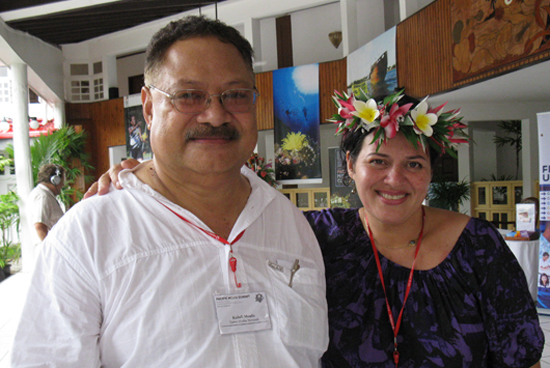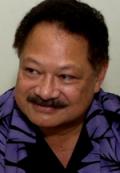
OPINION: As Crown Prince and Minister of Foreign Affairs before his elevation to the Throne, King George V was asked for his thoughts about Tonga becoming a democracy. While he supported the move, he said he was more concerned that Tonga’s economy should be the main focus for the government and the people of Tonga.
By posing the question of who wanted a poor democracy, he suggested strongly that there was little point in being a democracy if the economy couldn’t be fixed. With the principles that underpin it, a democracy is intended to be able to deliver economic benefits to its citizens.
The late King George V lived long enough to oversee the political reform which introduced a more democratic form of government toward the end of 2010. Rather than the monarch appointing the executive branch of government, the fully elected Parliament was given the constitutional power to elect a prime minister.
He, or she, in turn nominates cabinet members for consequent appointment. It is now almost one and a half years since Tonga’s first democratically elected government came to power, and nothing much has changed. In fact, things may worsen, particularly from a fiscal point of view.
According to the report by the Governor of the National Reserve Bank of Tonga (NRBT) on the first quarter of this year, the Tongan economy remained in great difficulty (Joyce Mafi, Governor of Reserve Bank. Presentation at Economic Dialoque, 7-8 March 2012. Growing our Economy: A collective Effort). A most disturbing factor is the huge drop in remittances since 2008, by a whopping $82 million pa’anga. This represents an incredible loss in the purchasing power of the average Tongan who depends on the benevolence of relatives living overseas.
Tonga’s agricultural exports have dropped by 70 per cent since 2006. And fish and marine products exports have dropped by 62 per cent over the same period. What this means is that the kingdom’s total export and trade earnings have dropped by $20 million pa’anga (NZ$14.8 million) in the past six years.
With the economy in rapid slide, the Reserve Bank revealed that public debt rose by $134 million pa’anga (NZ$99.4 million) in the past three years. Statistics indicate the only industry showing any ray of hope is tourism. The industry has recorded very slight growth.
Post-democracy condition
This post-democracy condition doesn’t measure up to the Messianic promise proclaimed over two decades that democracy would bring solutions and help Tonga align itself with the same values driving the West - all this in the hope that the outcomes of peace, happiness, wealth, health, and social cohesion would be shared by Tongans. Never mind that none of these values are at work in the West, and worse off in the so-called Third World cultures that have embraced this offer of a solution by adopting democracy.
Rightly or wrongly during their campaign for political reform, pro-democracy advocates, espoused the theory among their enthusiastic followers that democracy would bring prosperity and a marked improvement in people’s welfare. A day after the election, one resident from the village of Pea appeared on television describing how he looked forward to being "more prosperous" now that his homeland had become a democracy (Taimi ‘o Tonga news coverage, Jan – April, 2012).
People throughout the island kingdom expressed similar sentiments as the long awaited signs of democratic reform appeared to snap into gear. Their hopes were high that they would soon inherit economic benefits through newfound political freedoms.
Most did not understand what democracy actually meant. The propagandists had never bothered to explain. To most politicians, democracy was the "vaka" they needed to ride into power. And indeed they were and are in power.
In the relatively short time since the new reform regime came into existence, the cabinet has been reshuffled twice. That is a sign "the team" has yet to find the right combination, a disconcerting feature as the government approaches the halfway mark of its term in office.
What is more concerning is the apparent lack of vision or plans being communicated to the people of Tonga. Few people, including those in government ranks, know where they are going. That is a sad indictment. And the opposition cannot claim any kudos. They’re worse than the government when it comes to communicating any views on the way the country should be heading.
No going back
The architect of Tonga’s political reform has passed away. A new king sits on his throne. Just what does this mean for the future of democracy in Tonga?
The new king is expected to continue the process of continued democratic reform that his late brother introduced. He has little alternative. There is no going back to the ways of old. The journey must go on.
People need to be educated about and understand the values of democracy. There’s still a lot of work to be done, less political but just as vital. There has to be more social and economic change.
While the new king may be less of a visionary than his late brother, he may be more pragmatic. He may be less philosophical about a lot of issues concerning the country, but he will hopefully be more decisive in finding solutions to problems. He will have definite influence over government policies, assisted as he will be by the nobles who can still pull the strings of power.
King Tupou VI may well play the leading role in guiding the kingdom along the path to its future. The irony is that the monarch gave up his executive powers in the reforms of 2010, allowing the prime minister to exercise powers never previously available to him.
The new King could find himself being asked by the Prime Minister of the Kingdom’s current administration to give advice on how the government should proceed on a multitude of issues. He’s likely to gladly accept such a role. He is supposed to act that way anyway….and after all, he was once the prime minister of Tonga himself.
This article was originally published b y Pacific Institute of Public Policy and has been republished with the permission of the author. Kalafi Moala is the managing director of Taimi Media Network in Tonga and is a co-founder of the regional media organisation PasiMA.
Author's personal comment on the reference: The point brought out here is a widely held belief throughout the country that democracy would bring prosperity, and other benefits “promised” by the reformers before enactment of the reform. I gave an example of a man from Pea Village which we interviewed (there were many we interviewed throughout Tonga), just as an example, and then I pointed out: “People throughout the island Kingdom expressed similar sentiments as the long awaited signs of democratic reform appeared to snap into gear. Their hopes were high that they would soon inherit economic benefits through newfound political freedoms.” Their expectations were too high, so when there was no change to their economic status, there was widespread disappointment. Simplistic? Maybe so. But it’s the reality on the ground in terms of perceptions.
This work is licensed under a Creative Commons Attribution-NonCommercial 3.0 New Zealand Licence.




